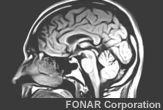Study Reveals the Logic Behind Our Irrational Brains

Get the world’s most fascinating discoveries delivered straight to your inbox.
You are now subscribed
Your newsletter sign-up was successful
Want to add more newsletters?

Delivered Daily
Daily Newsletter
Sign up for the latest discoveries, groundbreaking research and fascinating breakthroughs that impact you and the wider world direct to your inbox.

Once a week
Life's Little Mysteries
Feed your curiosity with an exclusive mystery every week, solved with science and delivered direct to your inbox before it's seen anywhere else.

Once a week
How It Works
Sign up to our free science & technology newsletter for your weekly fix of fascinating articles, quick quizzes, amazing images, and more

Delivered daily
Space.com Newsletter
Breaking space news, the latest updates on rocket launches, skywatching events and more!

Once a month
Watch This Space
Sign up to our monthly entertainment newsletter to keep up with all our coverage of the latest sci-fi and space movies, tv shows, games and books.

Once a week
Night Sky This Week
Discover this week's must-see night sky events, moon phases, and stunning astrophotos. Sign up for our skywatching newsletter and explore the universe with us!
Join the club
Get full access to premium articles, exclusive features and a growing list of member rewards.
Is a pound of stones heavier than a pound of feathers? Of course they both weigh the same, but the decisions people make are remarkably susceptible to how choices are presented or framed.
Now scientists are pinning down the centers in the brain related to how this "framing effect" can influence decision-making. The findings could have a big impact on economics, among other things.
"Classical economics assumed humans are fundamentally rational and never really considered emotions quite important, but this shows emotions are embedded in our brain when it comes to making decisions," said Benedetto De Martino, a cognitive neuroscientist at University College London.
How you frame it
De Martino and his colleagues scanned the brains of 20 volunteers. At the same time, the researchers told the participants they received a sum of money and then repeatedly posed them one of two choices. Either the volunteers were told they could keep a chunk of money or gamble, or informed they could lose some fraction or gamble.
As expected, those told they could keep money or gamble were generally leerier of risk. On the other hand, volunteers informed they could lose money or gamble often were more risk-seeking.
The volunteers who were more susceptible to the framing effect showed greater activity in an emotion- and learning-related brain region called the amygdala.
Get the world’s most fascinating discoveries delivered straight to your inbox.
People most immune to this framing effect had increased activity in other brain regions, the orbital and medial prefrontal cortex, "some of the most modern areas of the brain, the most different between us and the other primates," De Martino told LiveScience. When these are damaged, the resulting behavior can be driven completely by emotion and impulse.
Coping with emotions
Emotions can help play a role in decision-making when information is incomplete or too complex, to serve as at times critical rules of thumb, the researchers said in their report in the Aug. 4 issue of the journal Science. However, in modern society, where making the best decision can often require skills of abstraction and examining problems outside their context, emotions can render decisions irrational.
De Martino stressed that people who could overcome the framing effect did not lack emotions.
"Some people think rationality is the opposite of emotion, but from our results, everyone had emotion, but some people were better at coping with their emotions," he explained.

 Live Science Plus
Live Science Plus










